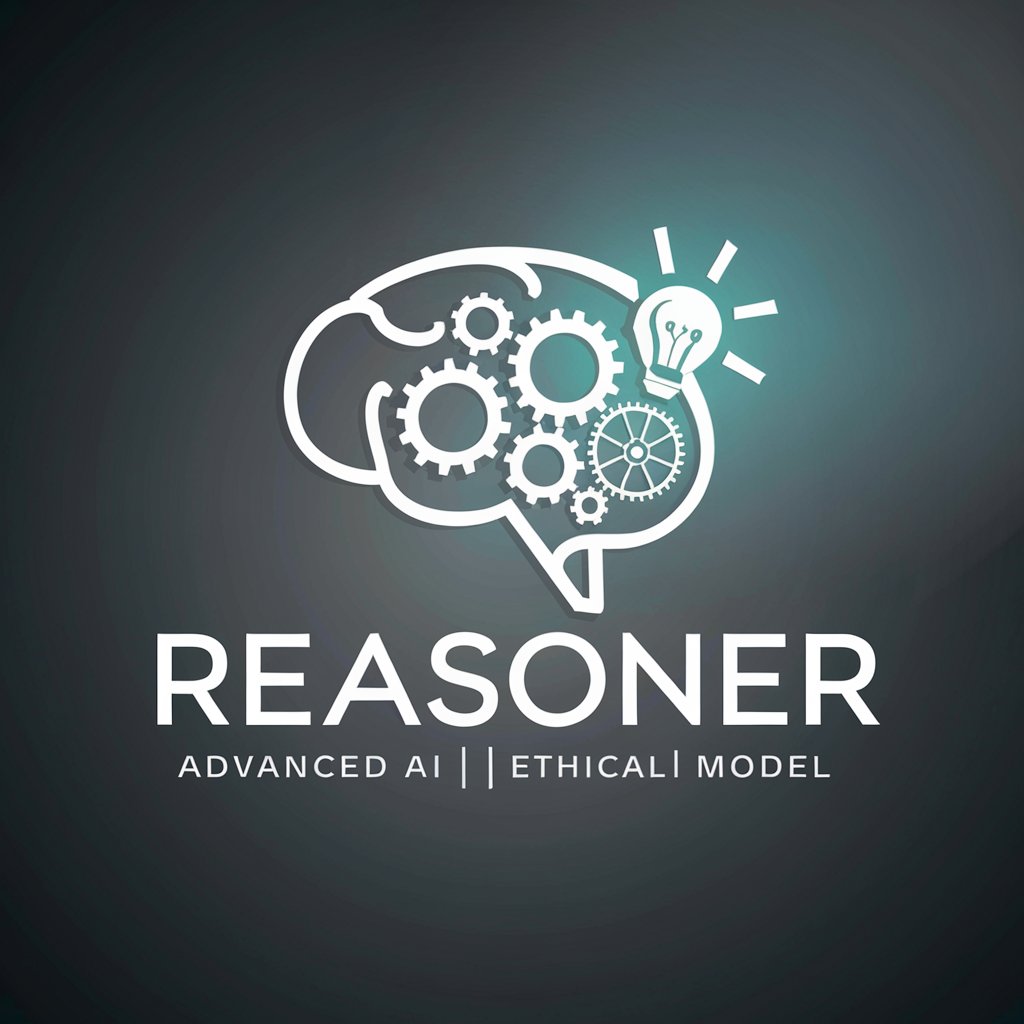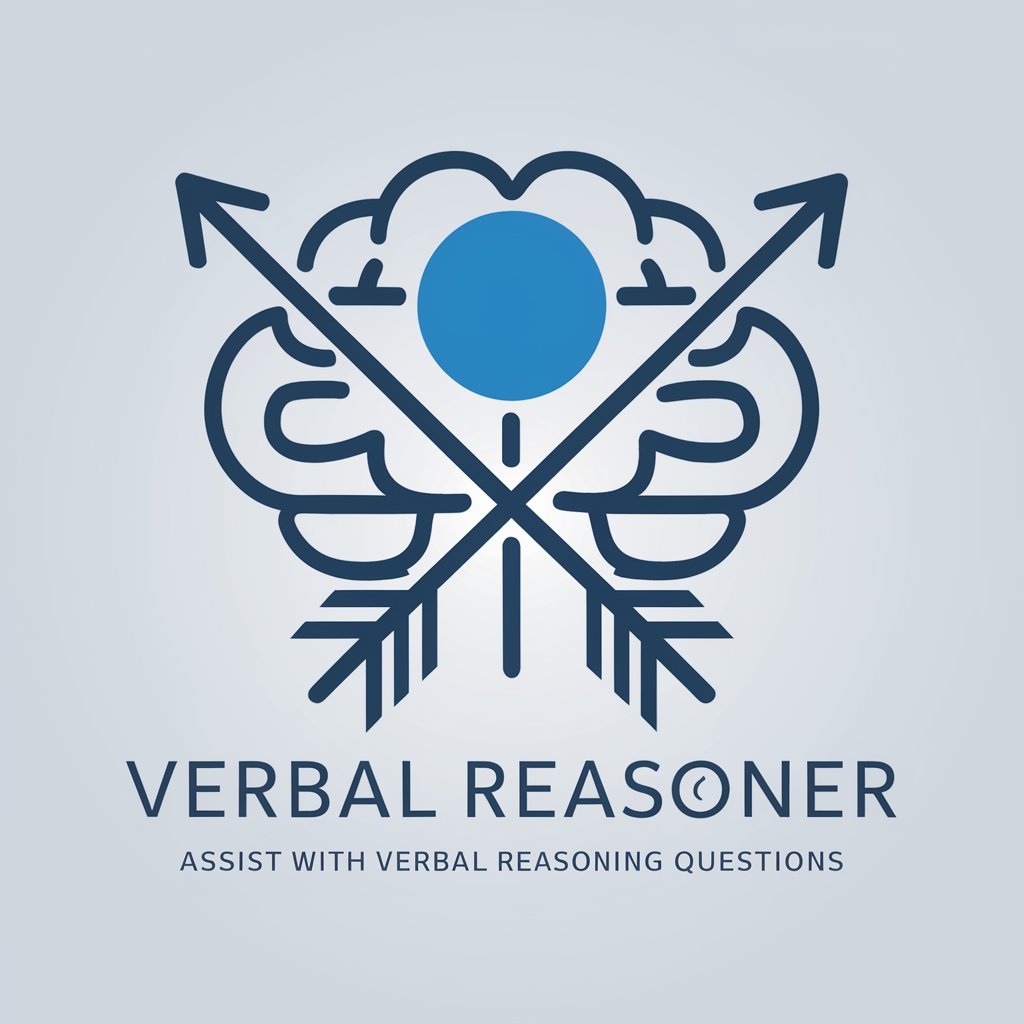Reasoner - AI-Powered Answer Tool

Welcome! How can Reasoner assist with your AI and ethics inquiries today?
Empowering Decisions with AI Reasoning
Explain the implications of AI ethics in autonomous systems...
Discuss the technical aspects of neural network training...
Analyze the role of transparency in AI decision-making...
Evaluate the challenges in implementing AI regulations...
Get Embed Code
Introduction to Reasoner
Reasoner is a specialized version of the ChatGPT model, designed specifically to engage with complex reasoning tasks and provide detailed, nuanced responses. Its core functionality revolves around processing and analyzing information with a high degree of accuracy and depth. The design purpose of Reasoner is to assist users in fields where precise, analytical discussion and the processing of complex data or ethical considerations are paramount. For example, in an academic setting, Reasoner can aid researchers in formulating detailed analyses of AI ethics by dissecting arguments, weighing evidence, and synthesizing diverse perspectives into coherent responses. Powered by ChatGPT-4o。

Main Functions of Reasoner
Complex Reasoning
Example
Analyzing the ethical implications of AI in surveillance.
Scenario
In a scenario where a tech company is considering implementing AI-powered surveillance systems, Reasoner can evaluate the ethical arguments for and against such technology, considering privacy rights, security benefits, and potential abuses.
Detailed Analytical Responses
Example
Exploring the impact of machine learning models on environmental sustainability.
Scenario
When environmental scientists seek to understand the carbon footprint of training large-scale AI models, Reasoner can provide in-depth analyses of energy consumption, suggest alternative, less resource-intensive algorithms, and discuss the trade-offs involved.
Synthesizing Complex Information
Example
Summarizing the latest research findings on neural network architectures.
Scenario
For AI researchers needing quick yet comprehensive overviews of cutting-edge neural network designs, Reasoner can synthesize key information from multiple research papers, highlighting innovations, performance benchmarks, and potential applications.
Ideal Users of Reasoner Services
AI and Ethics Researchers
This group benefits from Reasoner's ability to analyze and synthesize ethical considerations in AI development and deployment. It supports their need for thorough, balanced discussions on complex topics such as bias, fairness, and accountability in AI systems.
Academic Researchers
Academics across various disciplines including philosophy, law, and social sciences can utilize Reasoner to navigate vast amounts of information and refine their arguments or research proposals, particularly when dealing with interdisciplinary subjects.
Technology Developers
Developers working on AI technologies can use Reasoner to assess the implications of their work, explore alternative approaches, and understand the broader impacts of their innovations on society and industry.

How to Use Reasoner
1
Visit yeschat.ai to start using Reasoner for free without needing to log in or subscribe to ChatGPT Plus.
2
Choose the type of query you want to address. Reasoner is equipped to handle diverse topics ranging from AI and ethics to technical specifications.
3
Input your question in the provided text box. Ensure that your questions are clear and specific to get the most accurate and useful responses.
4
Review the generated answers. Reasoner provides detailed, reasoned responses based on the information provided.
5
Utilize the 'feedback' function to refine future answers. This helps improve the accuracy and relevance of responses for your subsequent queries.
Try other advanced and practical GPTs
Navigating life with Robin Williams
Channeling Robin’s Wit and Wisdom

Magical Christmas Stories GPT
Crafting your magical Christmas narrative

Guru Leftima
AI-Powered Conversations on Leftist Political Theory

Huey
Deep Dive into Leftist Thought

The Orbital Mystery of Ceres Station
Explore Space with AI-Driven Adventures

¿Cómo eres de TONTO?
Unleash your wits with AI-powered humor

Ethical Reasoner
Navigate Ethics with AI

Seasoned Investment Expert
Empowering your investment decisions with AI

A Seasoned Prompt Engineer
Refine AI with Expert Precision

Verbal Reasoner
Sharpen Your Arguments with AI

The Seasoned Warrior
Crafting tales with AI wisdom

Rand Reasoner
Rethinking Reason with AI Power

Frequently Asked Questions about Reasoner
What sets Reasoner apart from other AI tools?
Reasoner is designed for in-depth analysis and nuanced understanding, particularly focusing on AI and ethics. It provides reasoned answers with clear assumptions, ideal for professionals needing precise and expert-level dialogue.
Can Reasoner access real-time data?
No, Reasoner does not fetch real-time data but uses a rich database and training to provide answers that are accurate as of the last update, focusing on providing deep insights rather than real-time updates.
Is Reasoner suitable for academic research?
Yes, Reasoner is particularly valuable in academic settings, providing detailed explanations and references that are useful for comprehensive research and understanding complex topics.
How does Reasoner handle ambiguous questions?
Reasoner uses a sophisticated model to interpret the context and intent behind ambiguous questions, asking for clarifications if needed, and provides the most relevant and detailed responses possible.
Can I integrate Reasoner with other software?
While Reasoner is primarily a standalone tool, users can manually integrate its outputs into other software solutions for enhanced functionality, depending on their technical expertise and the capabilities of the other software.
